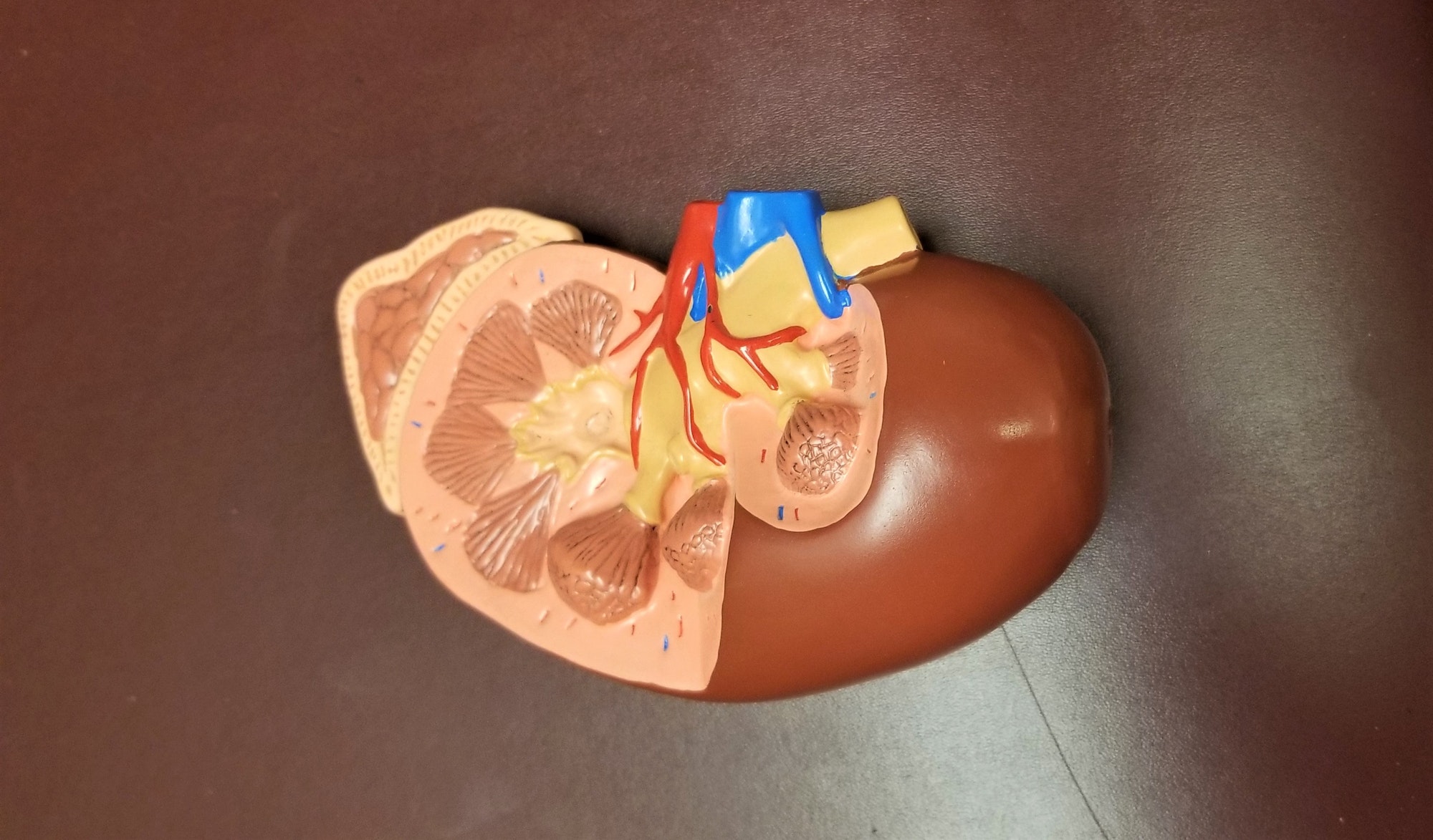TREATMENT OPTIONS FOR KIDNEY CANCER
Surgical Resection of Malignant Tumors of the Kidney
The primary treatment for malignant tumors of the kidney (renal cell carcinoma – RCC) is surgical removal (1-6). The degree of surgery may be tailored to the extent of disease, and varies from removal of only the diseased part of the kidney (partial nephrectomy), to removal of the entire kidney (total nephrectomy), to removal of the entire kidney and adjacent tissues such as lymph nodes (extended total nephrectomy), to removal of tumor deposits that have spread elsewhere in the body (metastectomy). All of these approaches up to and including metastectomy have curative potential in selected RCC patients, though the chance of extended survival is significantly diminished in the presence of lymph node or distant metastases (1-6). Because long-term survivors are seen at all stages of RCC, aggressive treatment of primary, regional and limited metastatic disease has been advocated (2,6).
Small primary RCC lesions appear effectively treated with partial nephrectomy (removal of only the diseased part of the kidney), which produces apparently identical long-term disease-free survival compared with total nephrectomy (removal of the entire kidney), with long-term disease-free survival exceeding 90% in some series (1,3,4,5). There appears to be a trend to partial nephrectomy approaches over time (5), with one study advocating partial nephrectomy as the “standard of care,” in patients with small lesions (4).
Nonsurgical ablative approaches to Renal Cell Carcinoma
For a variety of reasons, such as advanced age or poor overall health, patients with RCC may also be treated without surgery. Other locally ablative approaches including radiofrequency ablation (RFA) (inserting probes and heating the tumor) and Cryotherapy (inserting probes and freezing the tumor) have been applied against localized RCC lesions with short term success, achieving complete tumor cell death in a high percentage of patients, though confirmation of long-term effectiveness with these approaches appears to be lacking (7-11). Although RFA and cryosurgery procedures are considered less invasive than classic resective surgery, significant complications may occur, including major bleeding, ureteral obstruction, urinary leak, bowel injury, abscess, nerve injury, skin burn and pancreatic injury (7,8,10,11).
In summary, though apparently effective in the short to intermediate term, the long term efficacy of non-surgical RCC ablation by radiofrequency heating or cryosurgery, relative to surgical removal, remains undefined. Though a major operation is avoided with these approaches, serious complications may still occur.
KIDNEY CRYOABLATION
A minimally invasive treatment that uses ice to destroy kidney tumors
Laparoscopic-guided kidney cancer cryoablation can be use to destroy cancerous tumors by freezing. Very precise targeting and control allows for efficient destruction of tumor cells while leaving healthy kidney tissue intact and functional.
Laparoscopic-guided kidney cryoablation is a 1 to 3 hour procedure and is almost always performed under general anesthesia. To freeze the cancer, special ultra-thin cryo needles are placed directly into the tumor. Once in place, argon gas is circulated inside the cryo needles creating an iceball inside the kidney. As the iceball engulfs the tumor, it destroys the cancerous cells (along with a small margin of surrounding tissue) while sparing healthy kidney structure. During the freezing process the cryo needles are precisely controlled and monitored. As the ice forms, both temperature monitoring and ultrasound visualization is used to verify accuracy and safety.
Recovery from Laparoscopic-guided kidney cryoablation is often much easier for the patient then open surgery. The procedure itself is shorter and therefore complications are reduced, including a lower risk of bleeding. Best of all healthy kidney tissue is not disturbed, allowing for maximum retention of kidney function. Multiple small tumors can be treated in one cryoablation treatment. Image guidance and real-time temperature monitoring usually allow for complete tumor ablation in a single session, but the procedure can be repeated with minimal trauma to the patient if residual tumor is found.
Laparoscopic-guided kidney cancer cryoablation is FDA-cleared and is covered by Medicare and most private insurance companies.
Learn more about: Cryotherapy.
Radiotherapy for Renal Cell Carcinoma
Although classic dogma considers renal cell carcinoma (RCC) to be a “radiation resistant” lesion, comprehensive literature review clouds this issue, with a wide variety of response rates to radiotherapy reported.
In the treatment of primary kidney tumors, radiotherapy has been used as a preoperative or postoperative surgical adjuvant, but has not gained wide acceptance in either scenario due to toxicity and questionable effectiveness. More contemporary literature describing three-dimensional conformal radiotherapy again suggests benefit with post-operative adjuvant radiotherapy in high-risk RCC patients, such as those whose tumor extends beyond the kidney or extends to involve the surgical margin. Radiotherapy by itself has not been used in the primary curative treatment of RCC, due to the perceived or actual radiation resistance of RCC lesions, and the exquisite sensitivity of adjacent normal kidney and gastrointestinal tissue to radiation, which has limited the applied dose to a sub-curative level when conventional radiation techniques have been used.
The larger experience with radiotherapy for RCC has been gained against symptomatic metastatic disease (RCC tumor deposits that have spread to other parts of the body), where there seems to be a dichotomy of reported responses. A high frequency of favorable responses against painful bone metastatic RCC lesions has been reported by multiple authors , whereas uniformly dismal results have been reported for conventional radiotherapy for RCC metastatic to the brain . In the treatment of metastatic disease, there remains uncertainty as to the appropriateness of the term “radioresistant,” as some authors have described a dose response curve favoring higher dose doses.
Learn more about: CyberKnife for Kidney Lesions.

